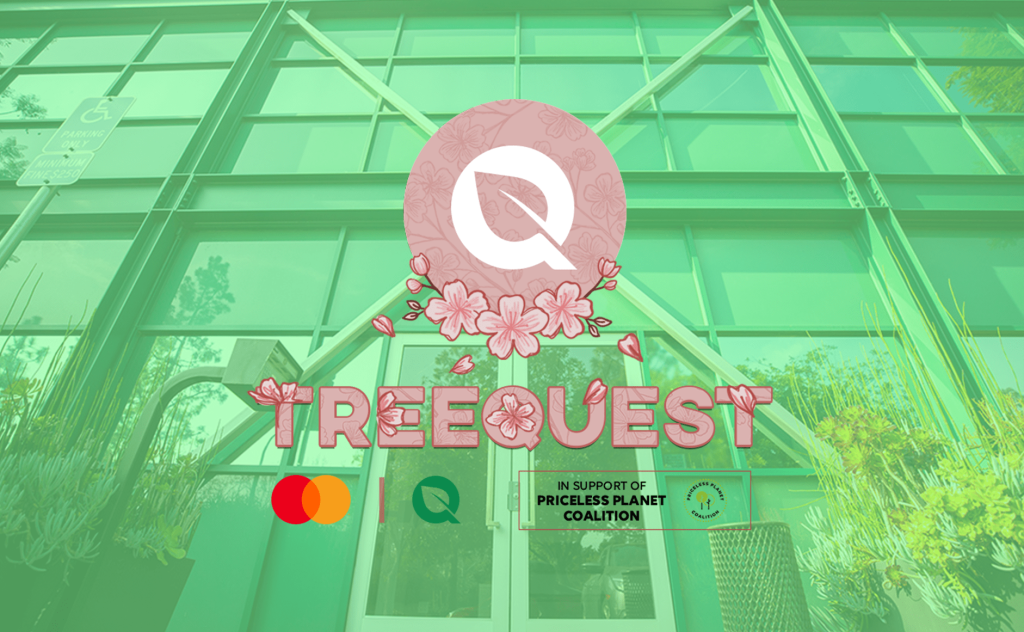
In late 2019, US-based esports organisation FlyQuest began planning a landmark shift in the team’s identity.
Lacking the cash reserves generally required to consistently compete for the top spot in Riot Games’ League of Legends Championship Series (LCS), the organisation would have to radically differentiate its mission to attract the attention of media and fans.
FlyQuest’s solution: the Go Green Initiative. It was the first significant instance of an organisation acknowledging that the esports industry, while not even close to the emissions of physical sports, could do more to help the planet.
The grand vision was to pitch FlyQuest as a sustainability champion, explained Michael Choi, CEO (who was at the time the organisation’s COO). The initiative began with TreeQuest, planting trees every time certain events happened in the team’s LCS games.
“We were actually going to physically go plant these trees somewhere. Bring fans, do events, make it fun… Bring esports communities, teams, all these people together.”
The COVID-19 pandemic would eventually halt FlyQuest’s plans, but the Go Green initiative has continued with Bee Quest and SeaQuest, including a visual re-brand in May 2021.
How green is esports?
Esports is considered relatively sustainable when stacked against more polluting traditional sports. Formula 1 estimates it releases 256,000 tonnes of CO2 emissions per year. Meanwhile, FIFA claims that the 2022 Qatar world cup will produce 3.6m tonnes — more than some countries — in just one tournament.
But esports isn’t perfect. Estimates by the BBC place the overall impact of our digital world, including devices, servers, and infrastructure, at 3.7% of global emissions.
Esports Insider roughly calculated using publicly available data that a single team — CS:GO Antwerp Major champions FaZe Clan — racked up 100 tonnes of CO2 emissions this year alone between flights, facility maintenance and other travel. Over each team, each game, it all adds up.
There are further issues. Merchandise sales comprise an essential revenue stream for teams, but polyester — the preferred material for most team jerseys — is non-biodegradable and responsible for millions of tonnes of microplastic pollution each year.
Finally, there are the industry backers. Entities with less-than-green records are increasingly turning to esports to improve their image. Take Saudi Arabia’s hosting of esports festival Gamers8, or CS:GO team forZe, which has been sponsored by Russian oil giant Lukoil for four years.
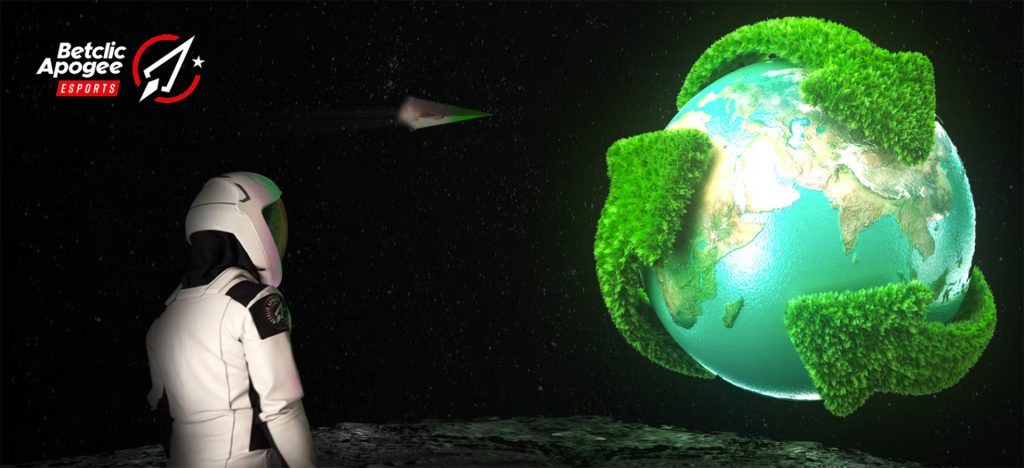
An innovative way to balance emissions
The first team to fully address its carbon footprint head-on was Portuguese organisation Betclic Apogee. Its CEO, Gonçalo Brandeiro, told Esports Insider that his team has become the first carbon-neutral esports team in the world.
“We have a dream, that one-day esports will be carbon neutral,” he said. “We want to help and inspire change towards this goal. We want to help other teams and every other component of the esports industry.”
Brandiero achieved his goal with the help of the organisation’s title sponsor, Betclic.
Apogee players use proprietary software on their machines to track carbon emissions. Travel is added to the total, then Betclic Apogee offsets its emissions through ZEROCertified, a company that sells carbon credits.
“For us, it’s not about being the trailblazers,” explained Brandeiro. “There’s an actual problem here, and let’s do something about it. … The real cost of carbon credits is setting up the process. We’ve already gone through it, so let’s make it easier for others.”
Nonetheless, carbon credits are a controversial tool in the quest for carbon neutrality because they do not actually reduce a company’s emissions. They finance other projects that aim to retain carbon in the earth or trees, or reduce emissions elsewhere. Greenpeace has called their widespread use by large businesses and sports teams alike a “scam” and a “distraction” from other climate solutions.
But as Brandiero explains, the options for esports organisations are limited. Players must attend international events, and to do it, they have to fly internationally. “Doing something is better than doing nothing, right? So at least we’re trying. There’s no perfect way of doing it.”
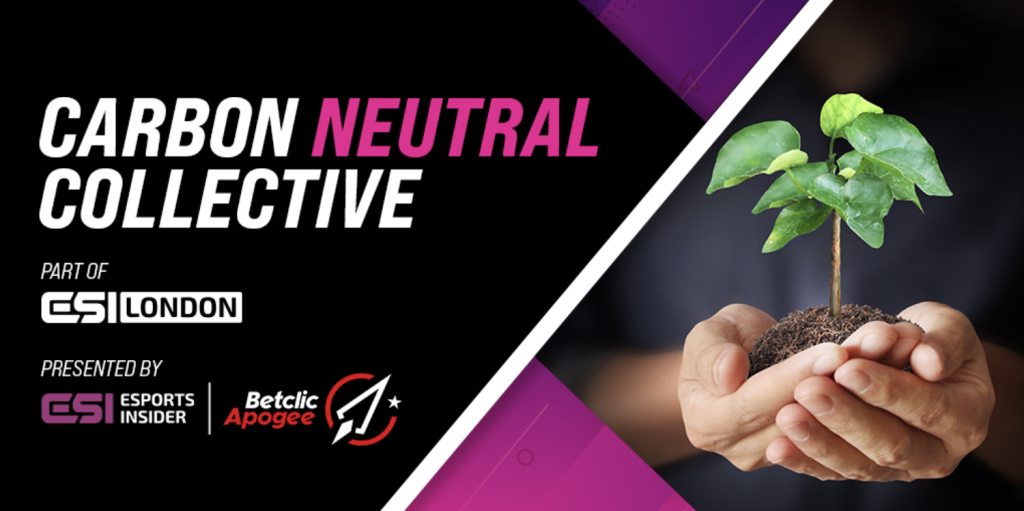
What else needs changing?
Choi admitted to Esports Insider that he had “never really looked into the whole carbon credit system,” arguing his team tried to focus its efforts on ideas that would also engage fans in sustainability.
“As a smaller esports team, I do think that the emissions we put out aren’t as massive. Ultimately, we are a fan-facing company so we try to do things that make sense for everybody involved in the scene.”
It’s worth pointing out that many esports teams are largely loss-making businesses. The decision to offset all carbon emissions would be relatively costly for organisations that have teams that frequently fly internationally. There is a compelling argument to focus on making other elements of team operations ‘green’ first.
For its part, FlyQuest has focused on fixing other sustainability issues within the team. “At FlyQuest we try to reduce as much waste as we can. We’ve been transitioning from plastic and paper utensils to silverware. We’ve been trying to cut down energy use as much as we can, especially during the pandemic when everyone was working at home.”
Even FlyQuest’s merchandising partner is sustainable. It has committed to using more than 25% recycled materials in all future merchandise materials, and it also has a ‘sustainable basics’ line that allows fans to shop for no-frills gear without harming the planet.
Betclic Apogee’s merchandise is similarly sustainable, and its lofty goal, says Brandiero, is to “change an entire industry.”
“We’re posting instructional articles on social media. We want to make sure that others can have a much faster, easier process towards becoming more sustainable as well.”
Betclic Apogee is crafting its efforts in line with the UN’s 2030 sustainability goals, a titanic task that requires reshaping how esports teams typically compete and support their players.
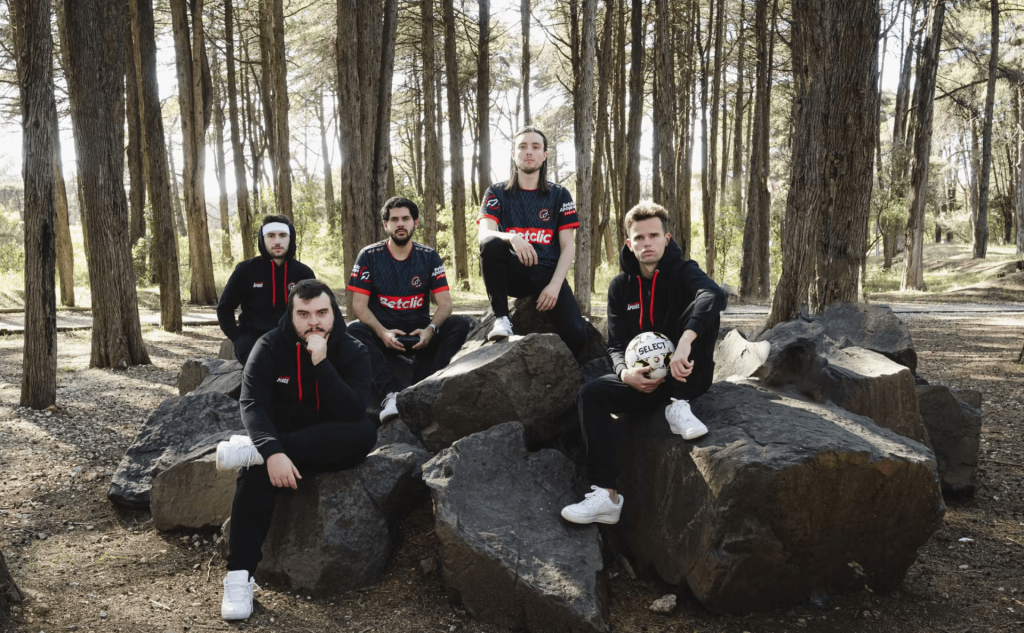
There is also a challenging conversation to be had about how organisations work with sponsors to ensure that they share environmental sustainability goals. Betclic was a key element in getting Apogee’s sustainability dream off the ground.
Over at FlyQuest, the organisation has partnered with a few different ‘green’ companies, from plant-based energy drink Riot Energy to financial services corporation Mastercard, which already has a tree-planting scheme similar to TreeQuest.
Choi is enthusiastic about the collaboration. “[Mastercard] were already doing these things to help the planet. We thought ‘this is the perfect partnership for us!’ We’re aligned on that, and for any future partners, their alignment with our goals is equally important to us.”
A fan-driven green revolution
Choi says the future of fan-led sustainability in esports is unclear. “The few fans that I’ve seen who have converted over to FlyQuest due to our environmental initiatives, they’ve stuck around, and they’ve been really diehard.
“Obviously, the ideal world is where we inspired everybody in esports to become environmentally conscious and socially aware and inclusive but in the real world, it’s not going to happen like that, at least not within the short period of time that we’ve been doing it.”
Other esports organisations have released environmental sustainability-focused initiatives, like Ninjas in Pyjamas’ partnership with A Good Company, but most have stopped short of sweeping reforms, for now.
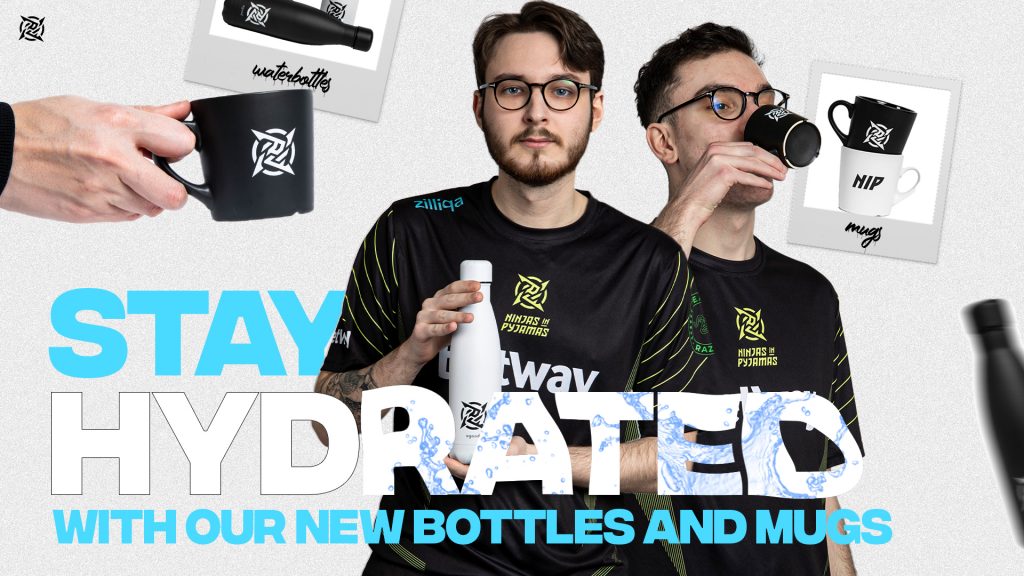
As consumer-facing companies, esports brands will likely wait until fan demand for green policy increases before making serious changes themselves. Top-down change is certainly not an option for now. Sports like F1 benefit from a single, powerful governing body that can implement commitments to carbon neutrality. Comparatively, esports is fragmented and has no equivalent body or plan.
Physical events are likely to remain the key field of competition. They level the competitive playing field, boost viewing figures, engage more fans and sell more sponsorships.
It will be challenging to find a green solution for travel just as the industry welcomes back LANs, as competitions like the Overwatch League plan for a return to international homestand games this year.
Betclic Apogee and FlyQuest, for now, are in an uneasy business-led first wave of green esports reformation. The most important question: how long before fans start demanding more?

